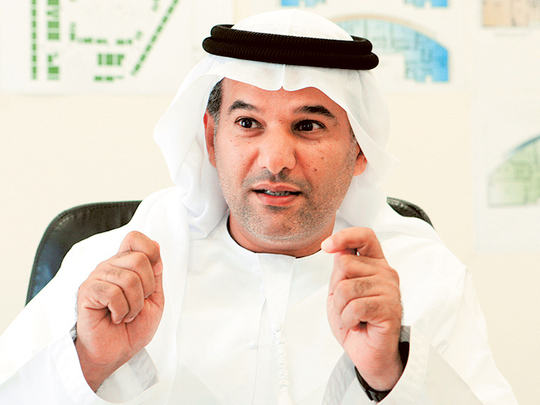
Abu Dhabi: “If all women were kept behind closed doors at homes and deprived of the opportunity to get educated, what would their role be in society? How can a nation be built by men only while women — who constitute almost half of the population — are not participating in the building of the future?”
Dr Mubarak Sa’ad Al Ahbabi believes that the UAE has answered these questions satisfactorily during the past 43 years by achieving women’s empowerment and gender equality as some of its major successes.
These progressive views of Emirati men have been inspired by the examples set by Shaikh Zayed Bin Sultan Al Nahyan, the founding father of the UAE, Dr Al Ahbabi told Gulf News.
As the chairman of the Department of the President’s Affairs, Dr Al Ahbabi had been fortunate to occasionally attend the ‘majlis’ of Shaikh Zayed and also work for more than two decades with President His Highness Shaikh Khalifa Bin Zayed Al Nahyan.
He remembers the old times when a conservative society believed that education would spoil girls as they would go out into society and mix with men. But Shaikh Zayed, with his far–sightedness, believed that women’s education was a pre-requisite for the formation of happy families and, consequently, a healthy society.
As a leader, said Dr Al Ahbabi, Shaikh Zayed believed in simplicity and practised it in his everyday life. Shaikh Zayed once asked why people spend so much money on wedding ceremonies. “Why do they host the ceremony at a hotel? A tent near the family house is enough to host close relatives and friends,” he had said.
This simplicity came from his realisation that wealth was for temporary custodianship only.
Shaikh Zayed asked the rich to ponder on why God gave them the wealth and not to many other people in the world. This was because, he explained, God wanted the rich to share their wealth with the needy.
This is the vision, said Dr Al Ahbabi, that has made the UAE unique among countries with rich resources. “There are many countries in the world having gold mines, oil and other expensive resources, still [they are] without prosperity and peace.”
The UAE’s achievements are not because of oil wealth only, said Dr Al Ahbabi, but primarily due to Shaikh Zayed’s vision to share the wealth with all nationals in the form of social development services.
Shaikh Zayed had said: “When God gave us oil, it was inevitable that we would use its proceeds for the good of the people, that we would compensate them for the difficult times of the past. This is the policy we are pursuing.”
The UAE’s wealth was not restricted to its nationals only but was extended to many friendly underdeveloped countries in different parts of the world, said Dr Al Ahbabi. “President Shaikh Khalifa has been following his father’s vision and ideals, ensuring further success of the UAE.
“When Shaikh Khalifa was the Abu Dhabi Crown Prince, he used to have a majlis twice or thrice a week at Al Bateen Palace. A large number of citizens used to visit him with their problems and he listened to each and every one patiently. Once, an old man had to wait for a long time and could not reach Shaikh Khalifa because of the crowd. Shaikh Khalifa noticed the old man while leaving the majlis and asked him, ‘Uncle, what is your problem?’ But the old man was too overwhelmed with emotion to speak. Shaikh Khalifa then instructed his secretary to find out the old man’s problem and solve it immediately.”
That benevolence has always crossed the borders of the UAE, said Dr Al Ahbabi. At all times of disasters in different parts of the world, the UAE’s humanitarian aid and support have always been the first to arrive in the affected countries. “During a visit to Seychelles, Shaikh Khalifa came to know there was no public park for children, so he ordered building one as a present from the UAE to the children of Seychelles,” Dr Al Ahbabi said.









